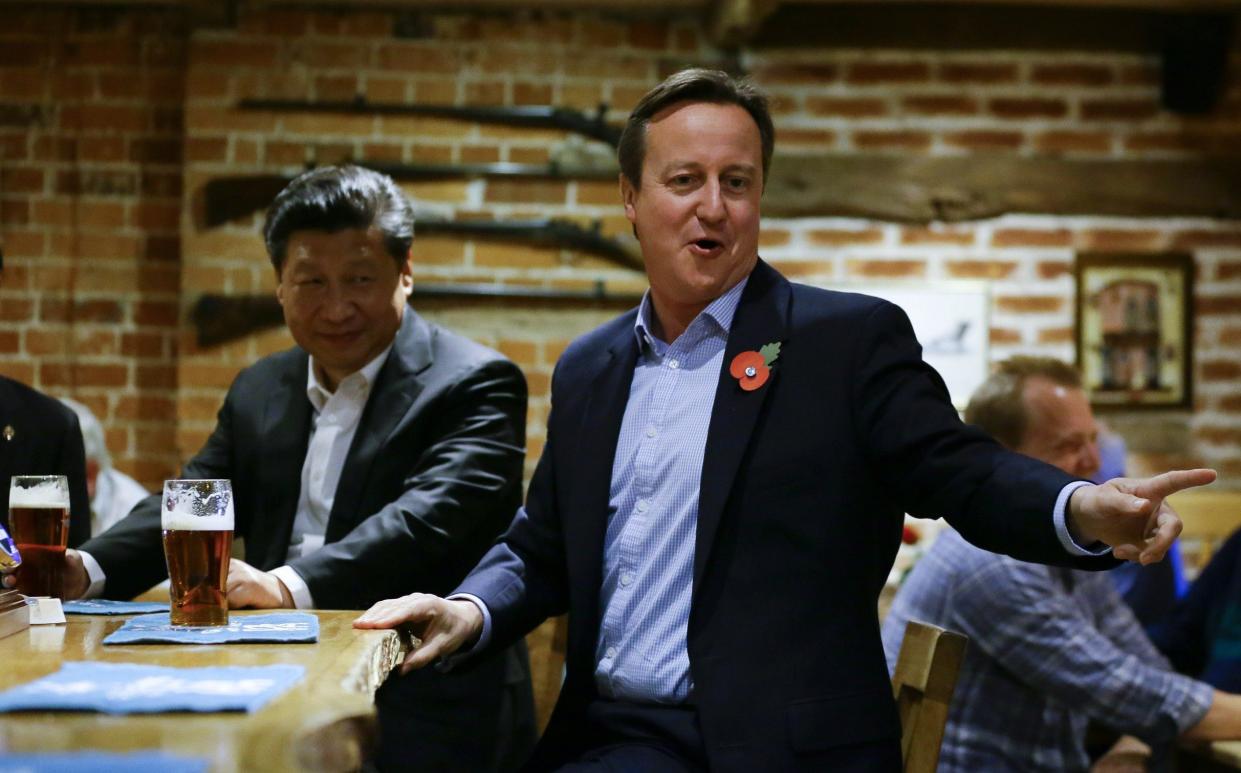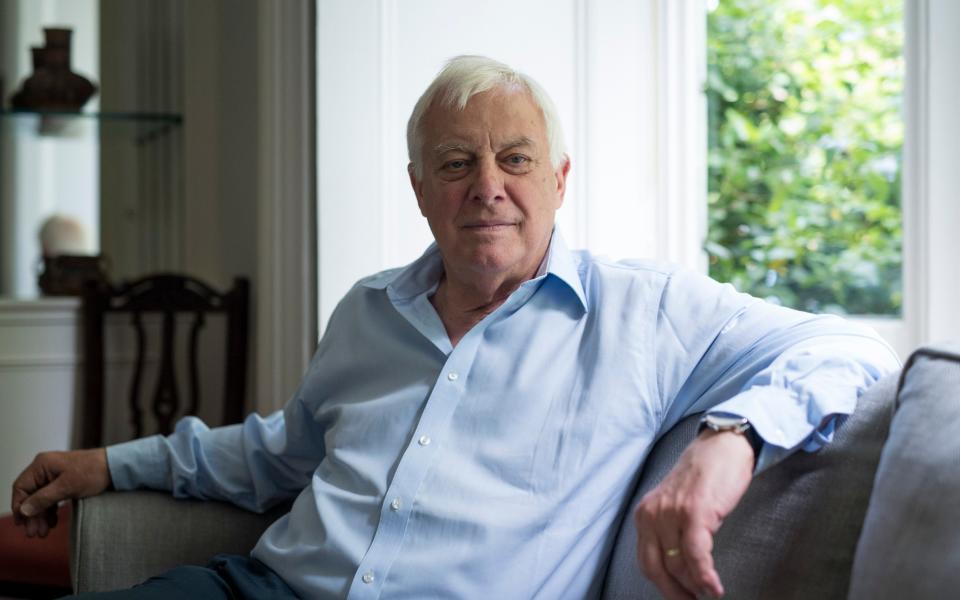Cameron’s approach to China labelled ‘demeaning and ludicrous’

- Oops!Something went wrong.Please try again later.
- Oops!Something went wrong.Please try again later.
- Oops!Something went wrong.Please try again later.
David Cameron’s approach to China during the “golden era” was “demeaning and ludicrous”, the last British governor of Hong Kong has said.
Lord Cameron sought closer ties with Beijing while in No 10 and hosted Xi Jinping, the Chinese president, in Downing Street in 2015.
Relations between China and the West have worsened since Lord Cameron left office and ultimately became Foreign Secretary last November.
Lord Patten, the 28th and last governor of Hong Kong, told BBC Radio 4: “At the same time as the golden period, China was starting to turn the screw in Hong Kong.
“And of course, I’m in favour of us trying to do business with China. I recognise that we need to have a relationship with China.
“We have to talk to them about big geopolitical issues. We want to do business with them. But the idea that you can only do this on your knees I find demeaning and ludicrous.”

The former governor, who held the position until the handover in 1997, told Shadow War: China and The West: “David Cameron introducing Xi Jinping to his pub near Chequers with a warm pint of beer – for what?
“At the same time as they were having a beer together, arrangements were being made with the police to make it difficult for people to protest in the streets of London, in order it might embarrass the Chinese leader. I mean, it was awful stuff.”
At the time of Lord Cameron’s appointment, there were claims that his previous attempts to usher in the “golden era” in relations made him an unsuitable candidate for Foreign Secretary.
Shortly after taking up the role, he publicly condemned the detention of Jimmy Lai, the pro-democracy newspaper publisher facing a possible life sentence in Hong Kong, breaking with the Government’s previous reluctance to do so.
George Osborne, the chancellor while Lord Cameron was in Downing Street, hit back at the accusation that the administration’s China policy was naive as “very shallow thinking”.
He told the same BBC Radio 4 programme: “I don’t really accept at all this paradigm that you choose between economic partnership with China or sort of a security confrontation with China.
“You’ve had a succession of prime ministers since David Cameron who’ve come into office saying, ‘well, we’re not going to follow that kind of Cameron-Osborne being nice to China or engaging with China’.
“And then the realities of being the British prime minister have pushed them towards engagement.”
James Cleverly, Lord Cameron’s predecessor in the Foreign Office, became the most senior minister to visit China in five years when he visited the country last August, prompting Sir Iain Duncan Smith to describe the trip as “project Kowtow”.
Since then, a British parliamentary researcher has been charged with spying for China, alongside another man.

